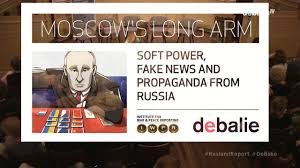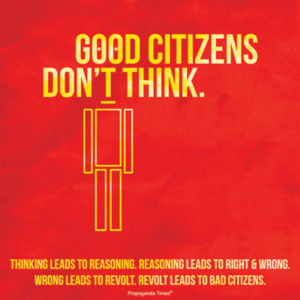30 November 2017
Making a Difference
Should we be extra careful now?
by Lynda Goetz
 You’ve probably heard it often in the past, “I am just one person. How can I make a difference?” We probably hear it less these days because with the advent of social media and instant online sharing, not to mention being able to put your name to a petition with one click of a mouse, it is far easier to see how individuals can make a difference without being celebrities, leaders or members of the Royal family. We just need to join in and as long as enough of us do so, those with the power are frequently forced to listen.
You’ve probably heard it often in the past, “I am just one person. How can I make a difference?” We probably hear it less these days because with the advent of social media and instant online sharing, not to mention being able to put your name to a petition with one click of a mouse, it is far easier to see how individuals can make a difference without being celebrities, leaders or members of the Royal family. We just need to join in and as long as enough of us do so, those with the power are frequently forced to listen.
The downside to this, of course, is so-called ‘fake news’, a term that has come into increased usage over the last couple of years to mean the misinformation, exaggeration or quite simply false reporting that has been used either to damage reputations or gain advantage, financial or otherwise, for those promoting what is essentially propaganda. Propaganda (from the Latin propagare – to spread or propagate) used to be the term applied to this sort of misinformation, which was largely used by governments to mislead other governments or their own people. It has been around in one form or another since recorded history began (Wikipedia gives the example of the Behistun Inscription authored on the orders of Darius the Great in the 5th C BC). The invention of the printing press in the 16th century provided a useful tool for spreading new ideas and different views of religious doctrine during the Reformation. Wars, and there were usually plenty of those around, were a good time for political propaganda. Films, radio and subsequently television were all useful new tools for propaganda in the 20th C and were used extensively by the Americans during World War II, as well as earlier by first Stalin and then Hitler. Interestingly, Radio 4’s programme, The Long View this week explores the parallels between recent Russian interference in the American and other foreign elections and covert British activities of the British Security Coordination (BSC) (a secret arm of MI6) aimed at bringing America into World War II. This programme throws light on the covert propaganda used by the British, ‘frequently more ruthless than any Nazi psychological warfare that I’ve ever studied’ according to a quoted American journalist who had some access.
Under the Blair government there was ‘spin’, a term we hear less these days, but which was also effectively propaganda, although not necessarily ‘fake news’, just news delivered with sufficient angle to ensure the understanding of it by any gullible members of the public was the most beneficial to the government of the day. Our current government seems not only incapable of spin, but of any consensus at all as to what angle it would like the media to take on its policies, if indeed it can agree on anything at all. This rather leaves other interested parties free to use the internet for their own benefit and purposes and there is now a plethora of online campaigns. Many are very successful.
 Organisations like Change.org and Avaaz, both founded in the United States are powerful online institutions set up, in the words of the latter, to ‘allow campaigns of extraordinary nimbleness, flexibility, focus and scale’ and can ‘act like a megaphone to call attention to new issues’. Avaaz according to its website has over 46 million members in 195 countries. Change.org claims ‘over 100 million people in 196 countries….creating change in their communities’. Both encourage people to start their own petitions. This week the Chennai 6 (former soldiers working for a maritime security company who were jailed by the Indian government in 2013 for possession of illegal firearms after their ship was boarded for straying into Indian waters) were freed. Although ‘the Government has worked hard for over four years to support the men and their families’ according to a Downing Street spokesman, the fact that Yvonne McHugh, the girlfriend of one of the men, has also worked tirelessly through social media has, one suspects, almost certainly put pressure on those in authority to act. She used Change.org to instigate a petition which gathered over 400,000 signatures. Imagine how difficult that would have been without access to the internet.
Organisations like Change.org and Avaaz, both founded in the United States are powerful online institutions set up, in the words of the latter, to ‘allow campaigns of extraordinary nimbleness, flexibility, focus and scale’ and can ‘act like a megaphone to call attention to new issues’. Avaaz according to its website has over 46 million members in 195 countries. Change.org claims ‘over 100 million people in 196 countries….creating change in their communities’. Both encourage people to start their own petitions. This week the Chennai 6 (former soldiers working for a maritime security company who were jailed by the Indian government in 2013 for possession of illegal firearms after their ship was boarded for straying into Indian waters) were freed. Although ‘the Government has worked hard for over four years to support the men and their families’ according to a Downing Street spokesman, the fact that Yvonne McHugh, the girlfriend of one of the men, has also worked tirelessly through social media has, one suspects, almost certainly put pressure on those in authority to act. She used Change.org to instigate a petition which gathered over 400,000 signatures. Imagine how difficult that would have been without access to the internet.
Last week a petition was circulating from Avaaz which claimed that ‘MPs had voted that animals can’t feel emotion or pain’. Recipients were urged to ‘sign’ (i.e. click) to petition the House of Lords to ‘Stop the Heartless Animal Vote’. I have to confess here that after a cursory check of the details of the debate, I signed. My mistake entirely and I should have been much more thorough. It transpired of course that the petition was ill-informed, emotive, driven by animal rights activists and celebrities and did not reflect the actual situation. Only the day after I had signed (and encouraged friends to sign by posting on my Facebook page) it became clear that both the reporting and the subsequent petition were driven effectively by ‘fake news’. Various Tory MPs including members of the government went on record to explain that voting against the amendment to the EU Withdrawal Bill proposed by Caroline Lucas of the Green Party was not a vote against the idea that animals are sentient and feel pain. Michael Gove went as far as warning that social media ‘corrupts’ and ‘distorts’ political decision-making.
 Ben Fogle, one of the celebrities involved, apologised on Twitter for his involvement, but added that he did not believe ‘the government communicated well enough’. Mr Gove considered that people should ignore false reports and turn instead to the transcript of Parliamentary debates (Hansard) or the BBC (although it has to be said that the government is not always so keen on the BBC’s reporting). His point that once we have left the EU there is more we could do (EU rules prevent us from banning the live export of animals for slaughter for example) is a good one. In fact, this country has, for some long time, had stronger animal welfare legislation than most EU countries ever had in place. Hunting with hounds is banned here, but not in France and a ban does not look likely any time soon (Hunting in France). Veal farms are not common here and yet on the continent (particularly France, the Netherlands and Italy) thousands of calves are reared for veal and transported live many miles for slaughter (Compassion in World Farming).
Ben Fogle, one of the celebrities involved, apologised on Twitter for his involvement, but added that he did not believe ‘the government communicated well enough’. Mr Gove considered that people should ignore false reports and turn instead to the transcript of Parliamentary debates (Hansard) or the BBC (although it has to be said that the government is not always so keen on the BBC’s reporting). His point that once we have left the EU there is more we could do (EU rules prevent us from banning the live export of animals for slaughter for example) is a good one. In fact, this country has, for some long time, had stronger animal welfare legislation than most EU countries ever had in place. Hunting with hounds is banned here, but not in France and a ban does not look likely any time soon (Hunting in France). Veal farms are not common here and yet on the continent (particularly France, the Netherlands and Italy) thousands of calves are reared for veal and transported live many miles for slaughter (Compassion in World Farming).
Propaganda for all sorts of purposes has, it would seem, always been with us, and as communication has advanced it has become easier and easier to use it as a means of influencing opinion. The ease with which it is now possible to add our own individual voices to the hue and cry on social media means we should perhaps be extremely careful what we add our names to and what we spread, share or propagate. According to a recent Ofcom Report nearly half our children (aged 12-15) cannot tell whether news on social media is fake. That means however that over half can, so perhaps they will as adults be better prepared to ‘make a difference’ without being sucked in to campaigns started on the back of hysterical headlines. In the meantime, perhaps I shouldn’t ask, but do please feel free to share this on any form of social media you currently use!
If you enjoyed this post please share it using the buttons above.
Please click here if you would like a weekly email on publication of the ShawSheet

